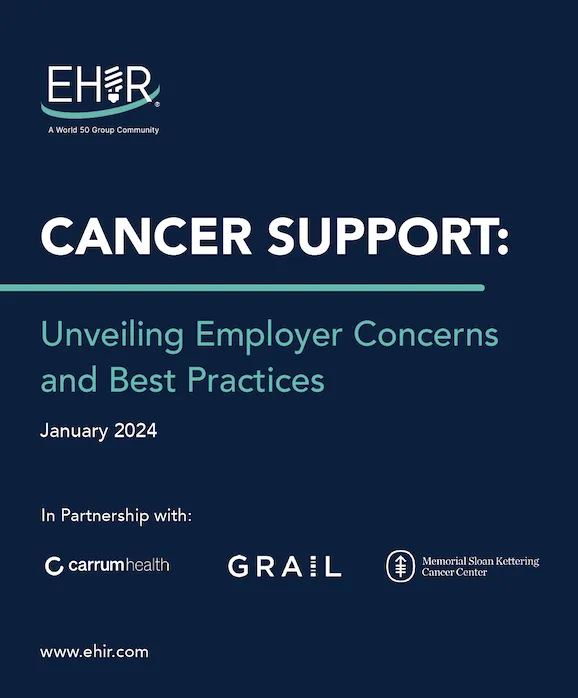Cancer Support: Unveiling Employer Concerns and Best Practices
In partnership with Employer Health Innovation Roundtable, Carrum Health and MSK Direct, GRAIL is proud to offer a comprehensive white paper examining how employers are addressing their cancer challenges. This in-depth analysis identifies key challenges and concerns related to cancer and outlines specific steps employers can take to develop and refine their benefit offerings to tackle cancer costs and provide employees with holistic care options.
Highlights include:
New research from EHIR uncovering employers’ top cancer challenges and how they’re addressing it.
3 case studies of employers proactively tackling their cancer challenge with innovative benefit offerings.
A solution evaluation guide to help identify leading providers and RFP questions to consider when evaluating these vendors for your own company.

Fill out your details to get FREE access to the report now!
Additional details about the report can be found above this form.
By submitting this form, you agree to GRAIL’s use of this information to contact you, including for marketing purposes. Please do not include any sensitive or confidential information, including health information. For more information, please refer to our privacy notice.
The Galleri test is recommended for use in adults with an elevated risk for cancer, such as those age 50 or older. The test does not detect all cancers and should be used in addition to routine cancer screening tests recommended by a healthcare provider. The Galleri test is intended to detect cancer signals and predict where in the body the cancer signal is located. Use of the test is not recommended in individuals who are pregnant, 21 years old or younger, or undergoing active cancer treatment.
Results should be interpreted by a healthcare provider in the context of medical history, clinical signs, and symptoms. A test result of No Cancer Signal Detected does not rule out cancer. A test result of Cancer Signal Detected requires confirmatory diagnostic evaluation by medically established procedures (e.g., imaging) to confirm cancer.
If cancer is not confirmed with further testing, it could mean that cancer is not present or testing was insufficient to detect cancer, including due to the cancer being located in a different part of the body. False positive (a cancer signal detected when cancer is not present) and false negative (a cancer signal not detected when cancer is present) test results do occur. Rx only.
The GRAIL clinical laboratory is certified under the Clinical Laboratory Improvement Amendments of 1988 (CLIA) and accredited by the College of American Pathologists. The Galleri test was developed — and its performance characteristics were determined — by GRAIL. The Galleri test has not been cleared or approved by the Food and Drug Administration. The GRAIL clinical laboratory is regulated under CLIA to perform high-complexity testing. The Galleri test is intended for clinical purposes.